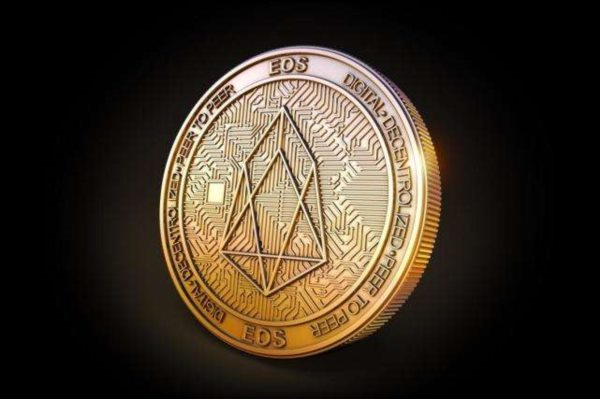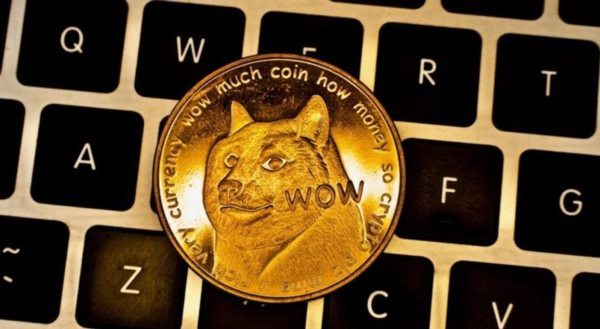时间:2024-03-13|浏览:339
关于比特币 (BTC) 四年一次的减半事件,目前仍有很多未知之处,该事件使比特币矿工获得的区块奖励减少了 50%,而比特币矿工在验证 BTC 交易和保护系统安全方面发挥着关键作用。
矿工会破产还是逃离网络?
算力会崩溃吗?
比特币价格会先涨后跌吗?
减半会刺激加密货币的进一步采用吗?
等等。
但有一点是确定的:每隔四年,矿工的区块奖励就会减少一半——这是预先编码到网络中的——并且在 2024 年 4 月的某个时候,一旦第 210,000 个区块被验证,矿工的奖励将从每个区块 6.25 BTC 至 3.125。
所有的减半都相似又不同,但今年的减半可能是独一无二的,因为一月份推出的新现货市场比特币交易所交易基金(ETF)帮助将比特币的价格推至历史新高,使加密货币整个行业的市值接近 3 万亿美元。
这就提出了另一个问题:鉴于比特币ETF似乎让许多机构开始关注比特币作为替代资产,四月份的减半是否会加速这一趋势?
有些人这么认为。
Swan Bitcoin 业务主管 Dante Cook 告诉 Cointelegraph:“机构仍在了解这一资产类别,但了解比特币的货币政策只会引发更多兴趣。”
减半是一个重要的证明,“尽管‘安全预算’较低,但比特币安全仍可以继续,”卢克索科技公司首席运营官 Ethan Vera 告诉 Cointelegraph,并补充道:
“我们预计机构对基础商品以及在该领域运营的公司(例如矿商)将持续产生兴趣。”
B. Riley Securities 高级董事总经理 Joe Nardini 补充道,对于想要购买代币本身的机构来说,将整体奖励减少一半可以说是一种诱惑。
Nardini 告诉 Cointelegraph,更多证据表明 BTC 供应量不会激增,这对许多潜在机构投资者来说是“净利好”。
然而,并非所有人都认为减半本身就会让考虑加密货币的大公司或金融机构加入比特币。
“The halving shouldn’t have an impact on whether large corporations/institutional investors will invest in Bitcoin for the first time,” Ruben Sahakyan, director of investment banking at Stifel Financial, told Cointelegraph.
Investors have clearly embraced the spot market Bitcoin ETFs — as seen by the net inflows — and further regulatory clarity will help to drive industry adoption and investor base, continued Sahakyan. “However, some investors are on the sidelines when it comes to investing in mining stocks as they await what impact the halving has on miners’ profitability and volatility is reduced.”
Others suggested that halvings may not be quite as they used to be, i.e., fraught with drama.
“The halving is likely not as big an event as the industry is well prepared and has been deleveraging in anticipation of the potentially reduced economics,” Taras Kulyk, founder and CEO of SunnySide Digital, an infrastructure provider, told Cointelegraph. “Additionally, the massive growth of L2 technologies on top of the Bitcoin Network has increased transaction fees — blunting the impact of the halving even more.”
Historically, Bitcoin has risen in price in the months leading up to a halving, which is happening again in 2024. Indeed, a JPMorgan analyst referred at the end of February to a “Bitcoin-halving-induced euphoria” gripping the crypto market. But is that really the case?
“There are two major narratives and drivers for Bitcoin currently,” Chris Kuiper, director of research at Fidelity Digital Assets (FDA), told Cointelegraph. The first is the recent approval of spot Bitcoin ETPs [exchange-traded products], which was a major milestone in Bitcoin’s history and a continued road to adoption.”
The second, Kuiper continued, is the upcoming halving. “As in the past, it’s expected that there will be little effect on the Bitcoin network itself. We may see an initial fall in hash rate, but it will likely only be a matter of time before it recovers to its previous levels and once again moves higher, which wouldn’t affect the operation of the network.”
Recent: Can the digital euro actually find traction in Europe?
Which of these two events is more impactful? We don’t know if the price surge results from the halving or the spot market Bitcoin ETF approvals, B. Riley Securities’ Nardini said, but it’s more likely “ETF induced,” in his opinion.
The JPMorgan analyst also warned the price of Bitcoin could drop to $42,000 after the halving. That, too, would follow the script of past halvings. Hash rate — the overall computing power of the network — is what makes the Bitcoin network more secure. In the past three halvings (2020, 2016, and 2012), the hash rate fell initially but quickly recovered within six to 31 days.
Bitcoin hash rate briefly fell after the last halving in May 2020, but quickly recovered. Source: CoinWarz“What is different today from historical halvings are the ETFs, which have dramatically changed the Bitcoin ecosystem,” Clark Swanson, entrepreneur and former CEO of Bitcoin mining firm Blockcap, told Cointelegraph.
The new ETFs have created a “demand shock to Bitcoin’s limited supply,” said Swanson. This will “drive prices even higher and blunt some of the market forces that have traditionally posed challenges for miners.”
“Post halving, there is going to be exactly 50% less Bitcoin produced — or available for sale — while ETF demand seems to remain, which should continue to drive volatility,” agreed Sahakyan. “Some of the miners have again started building up BTC balance sheets, which further reduces the available supply of Bitcoin.”
Others, however, anticipate some surprises. Aki Balogh, co-founder and CEO of DLC.Link, told Cointelegraph that “the supply shock that will come from reduced mining revenues is real and will play some effect.”
Some of that has already been priced in, “but there are unknown second and third-derivative effects that will only come out after the halving has happened,” continued Balogh. Still, “I think scarcity will push the price up somewhat.”
In the longer term, history suggests the hash rate will recover, and the price of Bitcoin continue its ascent to new heights. The halving is a unique situation where the block reward periodically decreases, and in this way, “the inflation rate of the network is pre-coded,” said Vera. “Historically, we have noticed that the decrease in new Bitcoin issuance has a positive impact on price.”
What about traditional BTC proxies like MicroStrategy and some of the larger BTC mining firms? Will they fare better or worse when the dust settles on the 2024 Bitcoin halving?
Economically speaking, halvings primarily influence BTC supply, said Balogh, whereas “the ETFs, MicroStrategy’s well-publicized purchases, and even El Salvador’s daily purchases of BTC impact the demand side.” The spot market ETFs are likely to affect Bitcoin proxies like MicroStrategy more than the halving. Added Balogh:
“Will MicroStrategy continue to serve as a proxy for BTC, given that one can buy BTC outright in an ETF? Probably slightly less so than before. It’s cleaner to buy an ETF versus a stock that is controlled by a Board of Directors with unknown objectives.”
On the other hand, MicroStrategy recently rebranded itself as a Bitcoin development company, he continued, while the new ETFs “are capital-inefficient in the sense that the BTC just sits there. Investors may prefer Michael Saylor’s more active management strategy versus the ETFs.”
One-year MicroStrategy stock price chart. Source: Yahoo FinanceCook, for his part, foresaw no diminution in MicroStrategy’s role as a BTC proxy post-halving. “MicroStrategy’s stock is up nearly 450% over the past year and over 250% over the last six months. It’s one of the ways institutions will seek to gain exposure to the asset class of Bitcoin,” he told Cointelegraph.
What about miners’ prospects? They’re most directly affected, after all.
“Each mining rig has its own profitability price point,” Fidelity’s Daniel Gray noted in a recent blog. “Every operation will be going into this event assuming they have enough reserves on hand to withstand the negative pressure of the halving.”
Maybe the global BTC mining sector today is larger and more stable than in past years.
“The mining sector overall has matured since the last halving and is significantly better positioned, but some will struggle unless the [BTC market] price continues to rise as the network difficulty continues to increase amid outstanding machine orders,” said Stifel’s Sahakyan.
“It appears miners are in better shape overall in terms of lower levels of debt and potentially better control over their costs, such as electricity,” added Kuiper. “What’s also helping miners this cycle is the price appreciation before the halving — something that also hasn’t been seen in previous cycles.”
However, “for smaller miners, it will be tough,” predicted Nardini. They may need to raise capital. Publicly held mining firms, by comparison, will generally have an easier time raising capital.
Since the beginning of 2024, Bitcoin miners with one peta hash of mining equipment can count on earning roughly $115 a day, Vera told Cointelegraph, which is “a significant improvement since the beginning of the year given the recent price movement,” but still:
“With the halving coming up and a relentless growth of network hash rate certain miners are going to be at risk of negative profitability post-halving.”
Many miners see the writing on the wall — lower and lower block rewards — and are looking more at supplemental revenue opportunities. “Transaction fees on the Bitcoin network are crucial for miners long term,” said Vera, “and we are seeing many start investing time and capital into developing the ecosystem of applications being built on Bitcoin.”
If one compares the introduction of the spot Bitcoin ETFs in January with the quadrennial Bitcoin halving in April, which will posterity deem more consequential?
Few this past week were willing to say the halving. The halving is “second in importance to the ETFs,” said Nardini flatly.
Still, halvings are unique to Bitcoin and represent a sort of advertisement for what is good and enduring about the cryptocurrency (e.g., it’s “hard money”), as well as some of the attendant risks like falling hash rate.
Recent: How will the Bitcoin halving affect ETH price?
Kuiper 表示,从采用的角度来看,人们必须看到比特币的“货币政策”再次按照计划和预期执行,“这可能会再次向投资者强调,比特币作为一种资产,正在日益成为一种资产”。与其他金融资产、商品或货币相比更加稀缺。”
或者,正如斯旺森指出的:
“正是比特币的有限供应和减半,这些特征使比特币成为有史以来最硬的货币。”
因此,他补充道,“这也可能是第一个存活了 200 多年的人造货币。”
![[涡流]比特币减半是否会吸引更多机构投资者进入加密货币领域?](/img/btc/35.jpeg)








